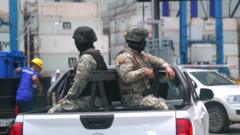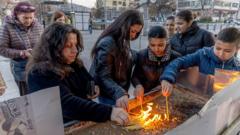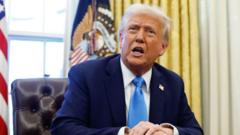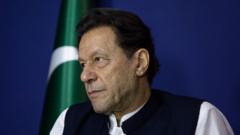Authorities investigate a string of coordinated arson and gun attacks at French prisons, pointing to drug gangs as the primary culprits behind the violence, amid wider speculations of political motives.
Violence Erupts in French Prisons: Drug Gangs or Political Agenda?
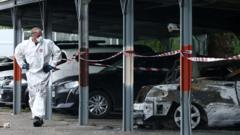
Violence Erupts in French Prisons: Drug Gangs or Political Agenda?
Recent attacks on French prisons raise suspicions of drug gang involvement in violent reprisals against police crackdowns.
In a surge of violence unprecedented in recent years, French prisons have become the focus of a wave of arson and gun attacks, leaving many to speculate about the culprits' identities. Officially, investigative authorities are keeping all options open, including foreign meddling or action from extremist groups. However, the prevailing theory is that the attacks, which occurred over three nights, were orchestrated by drug trafficking gangs retaliating against the government's intensified crackdown on illegal narcotics.
As of Thursday, Interior Minister Bruno Retailleau elaborated on the government's perspective, asserting, "We're dealing with the drugs-yobs, and they have not declared war on us; we have declared war on them." He noted that a new law targeting drug trafficking threatens their financial operations, provoking a violent response. Over the past few days, cars near prisons and a prison officer training facility have been set ablaze, in coordinated attacks that hint at a composition rather than random incidents.
Adding to the complexity, graffiti pointing to a newly emerged group named Droits des Prisonniers Français (DPF) signifies their engagement in defending alleged prisoners' rights, showcasing a video of a prison officer's car on fire uploaded to Telegram. Despite its claims, experts doubt the authenticity and ideological foundation of this group, which appears to lack the intellectual rigor common among leftist radicals focused on genuine reform.
Investigators assigned to the case have noted similarities between the attackers' profiles and those of drug gang members. Claims of foreign influence in the unrest have arisen, especially against the backdrop of ongoing tensions with Algeria and historical examples of Russian interference in France. However, the possibility of drug gangs being the primary assailants remains consistent with their motives and capacities.
Faced with these attacks, the French government remains steadfast in its resolve to combat drug trafficking. Interior Minister Gérard Darmanin and Retailleau are advancing new legislation through Parliament aimed at dismantling criminal networks. This legislation promises significant changes, including the establishment of a dedicated judicial branch for narcotics cases, enhanced investigatory powers, and heightened security protocols in prisons.
Moreover, preparations are underway for the creation of high-security prisons intended to house the nation's most powerful drug traffickers, implementing stricter visitation rules and measures against mobile phone circulation to hinder gang operations from inside prisons—a caveat highlighted by recent incidents, such as the escape of noted drug lord Mohamed Amra, who evaded arrests for nearly a year.
In summary, the resentment reflected in these prison attacks suggests that the drug gangs might perceive the government's increased pressure as a legitimate threat. The French authorities could ultimately leverage these violent events to showcase a proactive stance on crime, though successful apprehension and prosecution of the attackers will be essential to substantiate their claims to the public. A manhunt is currently underway, and officials are optimistic that an arrest may be forthcoming, offering potentially vital explanations for the violence that has shaken the prison system.



